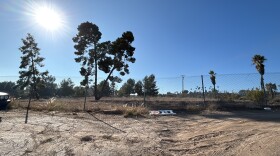DEBBIE ELLIOTT, host:
The man just appointed as archbishop of Warsaw abruptly resigned today, just as he was supposed to be installed in his new post. The reason: revelations that he had collaborated with Poland's secret police during the Communist era.
The resignation of Stanislav Wielgus came as an embarrassment not just for him but for Pope Benedict XVI, who had appointed him. John Allen of the National Catholic Reporter is following the story and joins me now. John, what do we know about the archbishop's relationship with the Communist authorities?
JOHN ALLEN: Well, the picture is still being assembled as documents from Poland's state archives from the Communist era are still coming to light. But what we know as of this date is that in the early '70s, 1973, then-Father Wielgus, who was a young professor of Medieval philosophy, was approached by the Communist security services, as virtually every young cleric in Poland at that time was, and was asked to essentially become an informant.
Over the course of time, he did sign a document promising to collaborate with the security forces in exchange for permission to travel internationally to academic conferences. He apparently did provide some kind of reading on the internal dynamics of the Polish church, including some opinions about some Polish bishops, although it should be stressed that at times the security agents would inflate the significance of what they were being told in order to impress their superiors.
But in any event, what is clear is that the archbishop, over the course of his early career as a Polish clergyman, was in regular contact with the security services in a way that went beyond what most Polish priests of the time were doing.
ELLIOTT: Now, at first, I understand, Wielgus was not admitting this information. What did he say as he was stepping down?
ALLEN: Today, he made his announcement in the cathedral in Warsaw. He indicated that although he continues to insist he never harmed anyone, that he's acknowledged that his contacts with the security forces have harmed the Polish church, have compromised his moral authority and have made it impossible for him to govern.
ELLIOTT: John, shouldn't the pope have known about this background before naming him archbishop?
ALLEN: Yes. Every expert that I have spoken to on this story has indicated that this situation was completely avoidable. The Institute of National Memory in Poland, which is the scholarly body that is responsible for studying the archives of the security forces, they had warned church authorities that there was compromising information about Wielgus well before the December 6th announcement of his appointment.
So the real question right now is, to use the old language of scandal, what did the pope know and when did he know it?
ELLIOTT: What was the reaction in Poland to this news today? I understand he was in St. John's Cathedral there in Warsaw when he made the announcement that he was stepping down. The current archbishop, Jozef Glemp, then went on to speak about him at a service.
ALLEN: That's right. I think broadly, one can say that the Polish church for many years has been divided between one wing that believes that the time has come for a full and public reckoning with its record during the Communist period, and another that would simply like to draw a line between 1989 and everything that came after it and pretend that everything that came before is now ancient history.
Of course as you know, this is a difficult question for the Polish church because it has, for many decades, thrived on its reputation for martyrdom in heroic opposition to the Soviets and to the Communists, and of course John Paul II was the great icon of all that.
What is now becoming clear is that the record was more mixed, and for every martyr and hero, there was a potential collaborator, and that of course is an agonizing and very delicate issue for the Polish church now to tackle.
ELLIOTT: Senior correspondent John Allen of the National Catholic Reporter. Thanks for talking with us.
ALLEN: You're welcome. Transcript provided by NPR, Copyright NPR.





